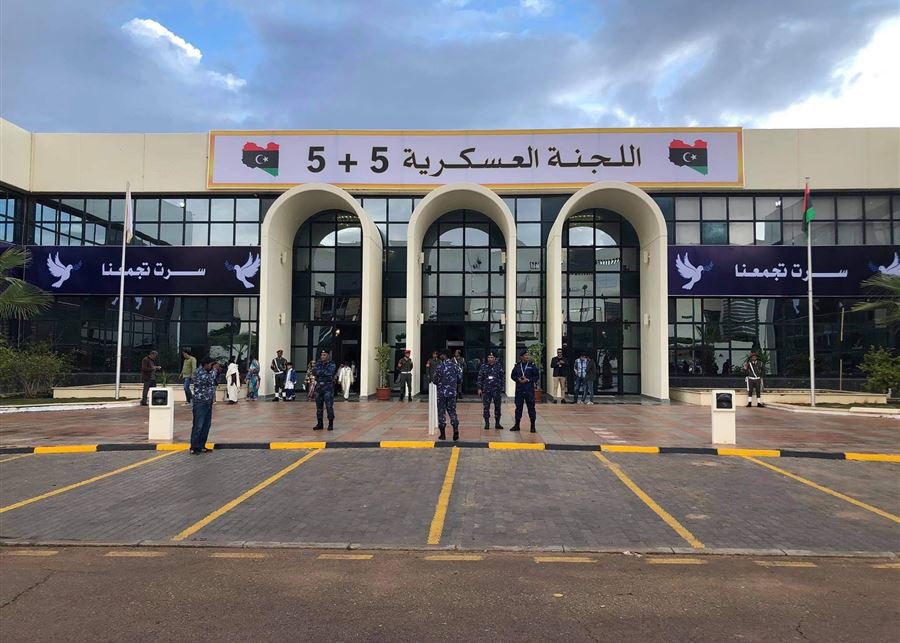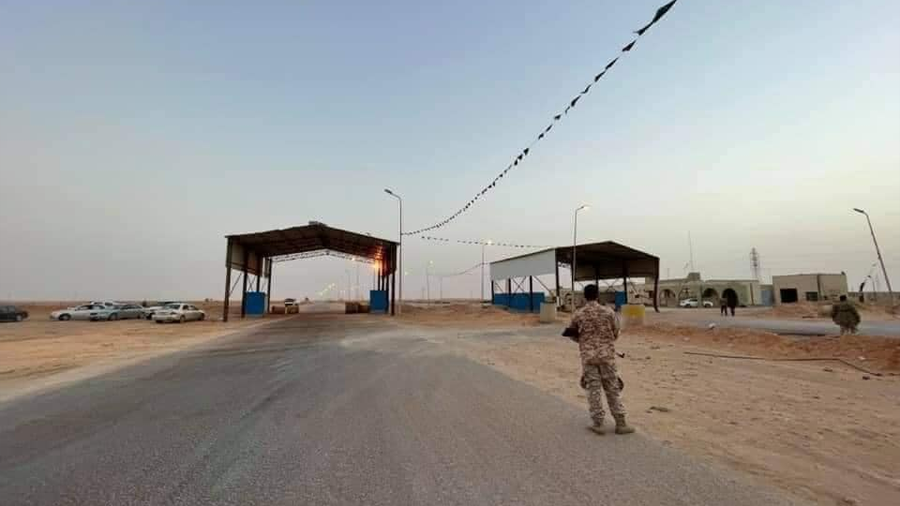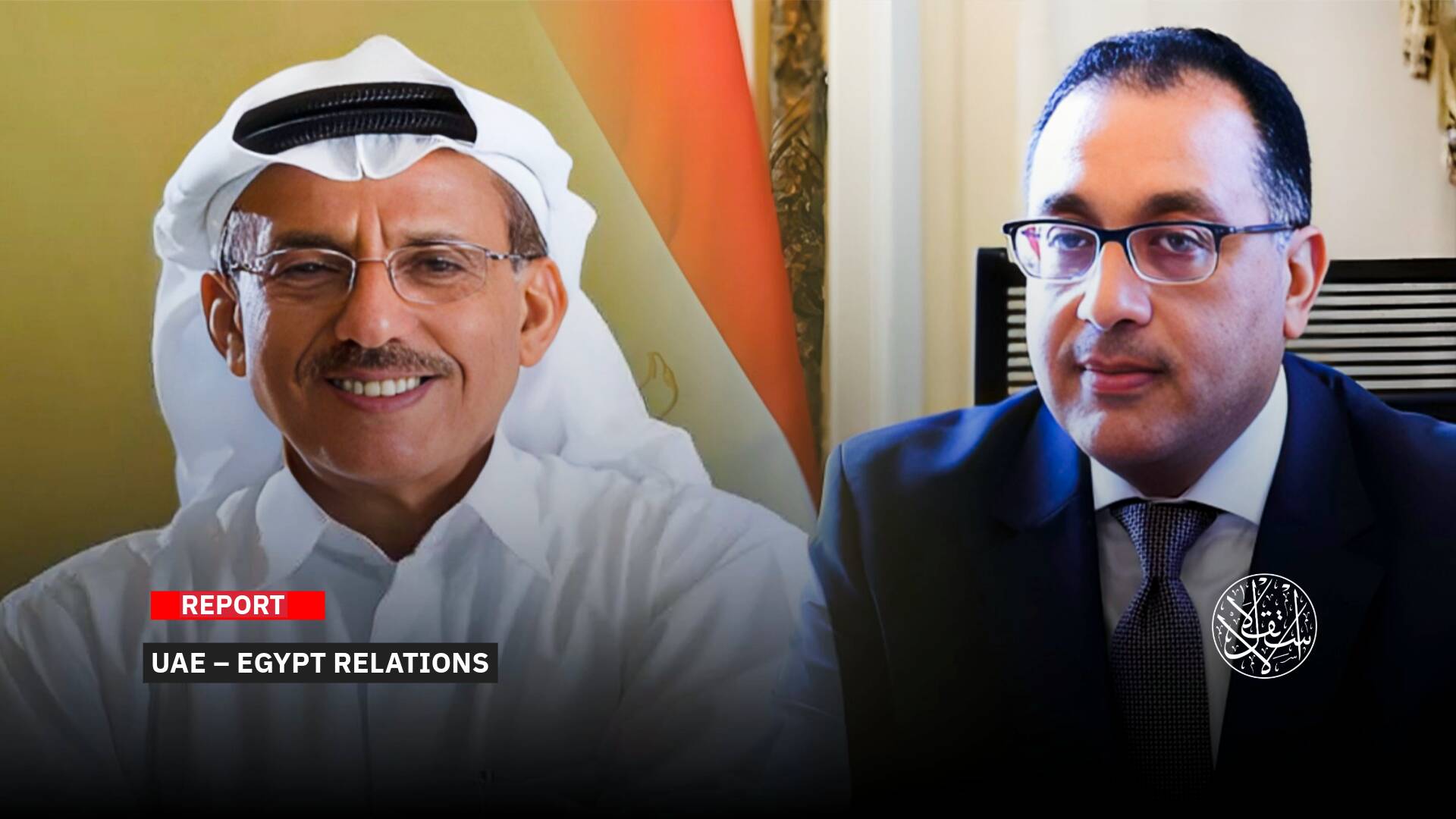The Libyan Coastal Road .. Why is it Still Closed ?
_1.jpg)
The Libyan Interim Government headed by Abdul Hamid Al-Dabaiba is making strenuous efforts to accelerate the opening of the coastal road connecting the east and west of the country, or what is known as the Misrata Sirte road.
However, The government and the Joint Military Committee said that there are some obstacles.
At the end of the meetings after 5 days, the Military Committee threatened on April 29, 2021, in a statement, to name those who obstruct the opening of the Misrata-Sirte coastal road and to announce the reasons for taking the necessary measures against them if the road could not be opened.
In a statement, the US embassy considered that reopening this road is an essential step for implementing the ceasefire agreement signed on October 23, 2020.
The Coastal Highway in Libya is still closed, despite the many demands for opening it, put forward by the UN envoy Jan Kubis, the US embassy in Tripoli, the head of the Presidential Council Muhammad Al-Manfi, and by the Joint Military Committee. So, who is really behind the crisis of keeping that highway closed?

Importance and Obstacles
The Libyan coastal road is so important, as it extends from the Libyan-Tunisian border to the Libyan border with Egypt, and connects the east and west of the country through the city of Sirte.
The road that was established in 1937 during the period of the Italian occupation of Libya, with a length of about 1822 kilometers, is considered the heart of the country. The current conflict in Libya is focused on the area between the cities of Sirte and Misrata, where Haftar's militias control about 40 kilometers of the road west of Sirte, while government forces control 60 kilometers east of Misrata.
The road has been closed since April 2019 during the Haftar militia attack on the capital, Tripoli, which pushed civilians to cross dangerous and alternative roads that are 3 times longer than the coastal road.
In December 2020, the Libyan discussed the reopening of the road, in implementation of the provisions of the Geneva Agreement on a permanent ceasefire signed in October 2020.
Engineering teams were formed in cooperation with the United Nations and the intelligence services to clear the road from mines planted by Haftar's militia during their withdrawal towards western Libya.
Solving the military problem is a top priority for the local parties and their international partners, and it remains an obstacle for all parties due to the lack of commitment of Haftar's militia to the provisions of the Geneva Agreement.
At the end of the fourth round of the Joint Military Committee meetings in the city of Sirte, which began on April 27 and lasted for five days, the committee threatened, in its final statement, to name the opponents to take the necessary measures against them regarding the opening of the coastal road.
It indicated that the leadership of the joint military force will be selected and assigned to start the tasks assigned to it and choose a headquarters for the force command in Sirte.
The spokesman for the Libyan National Forces Initiative, Muhammad Chopar, confirms that the obstacles to opening the coastal road linking the cities of Misrata and Sirte are the foreign presence on Libyan lands, whether they are mercenaries or foreign regular forces.
"The existence of the Wagner Group, which follows the Russian government, has become a great danger, not only to Libya, but to all African countries," Chopar added in his speech to "Al-Estiklal."
Perhaps the killing of Chadian President Idriss Deby at the hands of the opposition, with indirect support from the Wagner Group, is the greatest evidence of this, he said.
He pointed out that opening the coastal road will ease the suffering of the Libyans, embody unity, and allow the General Electricity Company to start maintenance of stations to join the network, which will contribute to improve electricity service to citizens.
Three Conditions
In light of the continued military build-ups from Haftar's militia, the Al-Jufra Sirte Operations Room refuses to open the western side of the road before the implementation of three conditions.
The conditions, as announced by the commander of the Sirte and Al-Jufra Operations Room, Ibrahim Bait Al-Mal, are a ceasefire and the removal of mines planted by Haftar's miliia.
In addition to the withdrawal of mercenaries and the return of Haftar's militias to the Al-Rajma area (Haftar's headquarters in Benghazi), which means returning to the areas where they were stationed before April 4, 2019, the date of the general's attack on the capital, Tripoli.

In statements to Anadolu Agency on April 30, 2021, Bayt Al-Mal denied the presence of any foreigner among its forces and said that " Anyone can come and make sure it is right."
So far, the first condition has been implemented by stabilizing the ceasefire, and the Military Committee has finished removing mines from the road in recent weeks. The third condition remains suspended in light of the continued mobilization of mercenaries in eastern Libya to support Haftar.
Haftar's loyalists believe that the conditions that the Bait Al-Mal maintained, are the ones that block the opening of the road, but the commander of the Al-Jufra Sirte operations room confirmed that these conditions came as a response to the non-compliance of the opposite party to any agreements of all previous covenants.
And the Libyan political analyst Al-Senussi Ismail considered that the issue of opening the coastal road had long lasted and it became complicated for Libyan citizens.
In statements to the Libyan "Febrayer" channel in early May 2021, Al-Senussi considered that the existing obstacles may be from both sides of the conflict and not only from one side.
He added: "There is one party that may have certain conditions (referring to the government forces) and another party that does not respect the technical aspects, especially with regard to clearing mines and also removing all armed formations away from the coastal road (not less than 5 kilometers)." (Referring to Haftar and his militia).
Al-Senussi believes that the matter is complicated and has international dimensions . However there is a chance to open the road now if we do not really follow the steps one by one.
He said, "At least we are progressing little by little. Opening the road, leaving armed formations, and withdrawing mercenaries and foreign forces are important matters, but I believe these steps cannot be linked together. We try to implement the terms of the agreement as possible and try not to waste time."
Al-Senussi considered that the citizen is the only one affected by the current crisis. He wondered what was the fault of the citizens traveling from Tripoli to Benghazi, a long distance due to the closure of the coastal road with more than 500 km.
On the other hand, Chopar believes that after the government failed to implement the Geneva Accord concluded on October 23, 2020, the issue of implementing it shifted from national to an international matter by placing the terms of the agreement under the clause of Chapter VII by UN Security Council Resolution ,April 15, 2021.
In mid-April 2021, the United Nations Security Council decided to establish an international monitoring mechanism for the ceasefire in Libya by sending a team of 60 international observers.
The Security Council called on 193 member states of the United Nations to support and implement the agreement, including the withdrawal of all foreign forces and mercenaries from the country immediately.
Chopar considered that with this step, the stage of political and diplomatic work related to the implementation of the Geneva Agreement has ended, so to implement the agreement and the aforementioned decision or not , has become useless because it is a binding matter for everyone, whether for Haftar or the foreign forces and mercenaries present in the south, east and west of Libya.
Chopar said that Haftar and most of the armed groups have become tools used by foreign powers, and that these forces and mercenaries all over Libyan soil in the south, east and west are still receiving external support from several countries.
This was evidenced by the landing of a Yoshin plane with ammunition at Al-Qardabiyah base coming from Russia during the past few days.
The American professor of the University of Washington William Lawrence also warned of the continued presence of foreign fighters in Libya, stressing that they represent a major obstacle to the success of the unity government.
Lawrence said in TV statements to the Turkish channel TRT World: "They are still there, and they will not go anywhere, as long as these saboteurs are present, the war can break out again."













